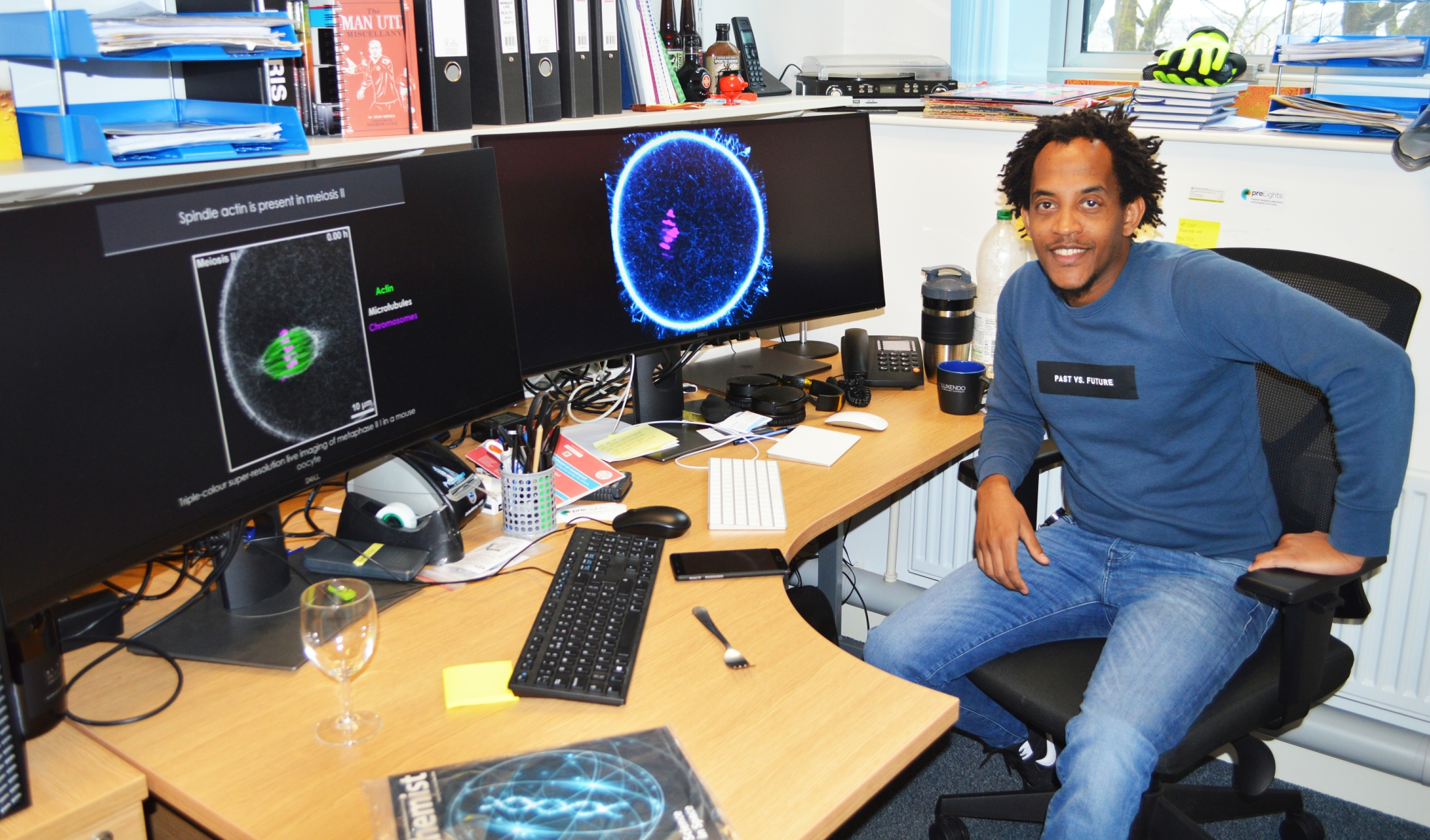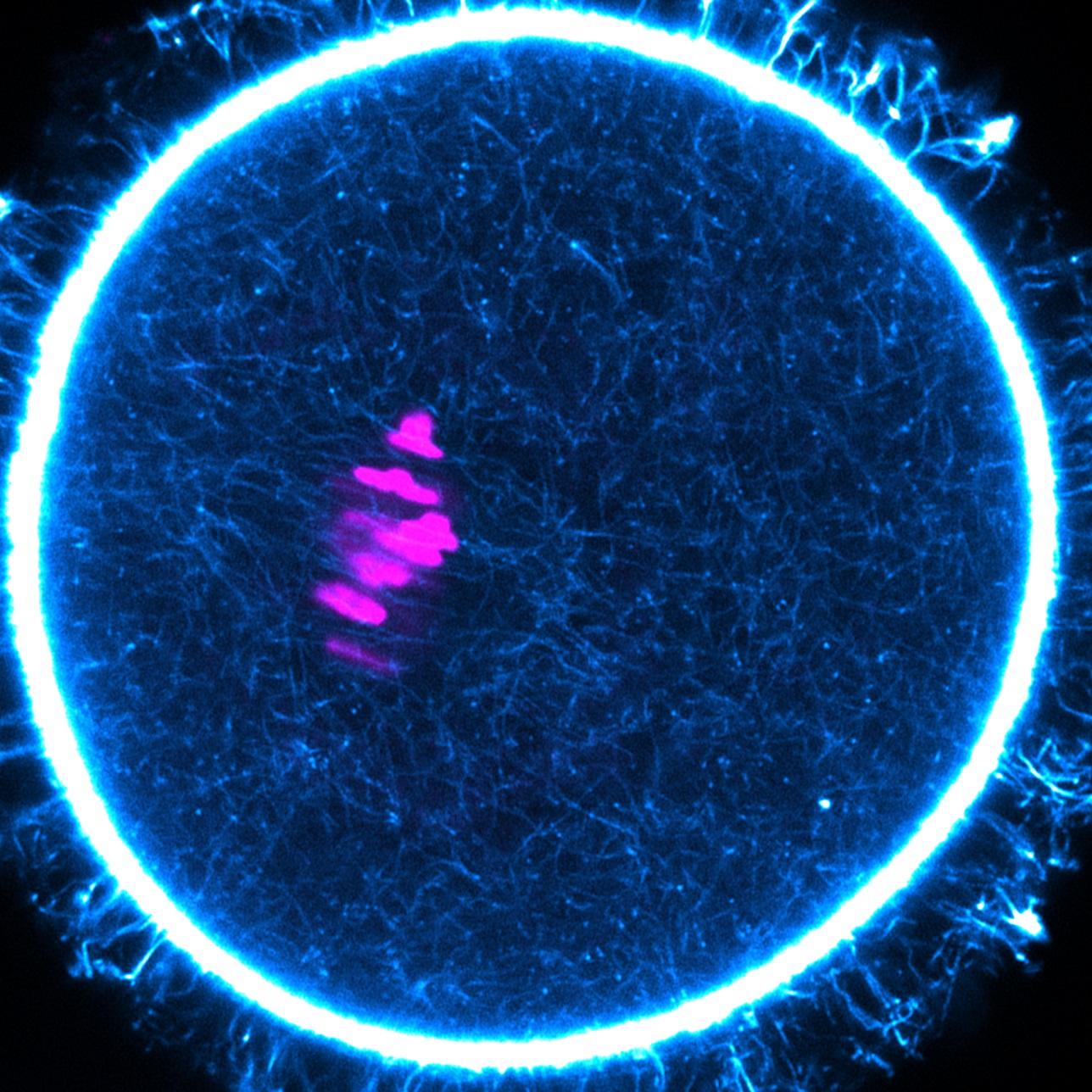In some cases, babies with extra copies of certain chromosomes are born when aneuploid eggs are fertilized. The most common example is trisomy 21 (having three copies of chromosomes 21) which is found in Down’s syndrome – it affects approximately 1 in 1000 live births worldwide.
Dr Mogessie has uncovered a mechanism of chromosome segregation which is unique to mammalian eggs - the spindle, a molecular machine made out of microtubules, and which segregates chromosomes in cell division, is bundled into functional fibres by actin (filaments of protein found in eukaryotic cells) (Science, 2017).
In order to bolster a Wellcome Trust/Royal Society Sir Henry Dale Fellowship application, Dr Mogessie used funding from the Elizabeth Blackwell institute to search for proteins which act to join actin and microtubules together in immature mouse egg cells (oocytes). The funding was from the Elizabeth Blackwell Institute Identifying candidates for Wellcome Trust Investigator Awards scheme. Specifically, he was able to use the funds to secure a variety of antibodies with which to identify 16 target proteins, to gain access to sufficient oocytes for the work, and for extensive confocal microscope imaging.
Although not all of the antibodies worked in mouse oocytes, Dr Mogessie was able to use a number of them to identify the candidate proteins and perform substantial follow-up experiments to identify which of these proteins might be worthy of further investigation.
Preliminary work as such as that enabled by the EBI funding can be critical to gaining further funding. “During the funding period, I was able to secure a Seed Award from the Wellcome Trust (£100k) and I am certain the funding from Elizabeth Blackwell Institute has positively contributed to this success”, said Dr Mogessie.
Indeed, as result of his diligence, he was recently awarded an extremely prestigious Wellcome Trust Sir Henry Dale Fellowship of £1.42 million over 5 years to investigate ‘Actin-dependent mechanisms of chromosome segregation in mammalian oocytes’.
Dr Mogessie said: “Funding from the Elizabeth Blackwell Institute was instrumental in generating some preliminary data to directly address reviewers’ questions during the Henry Dale Fellowship interview.”
But he also considers the support from Elizabeth Blackwell Institute to be extremely helpful in other ways than purely financial.

